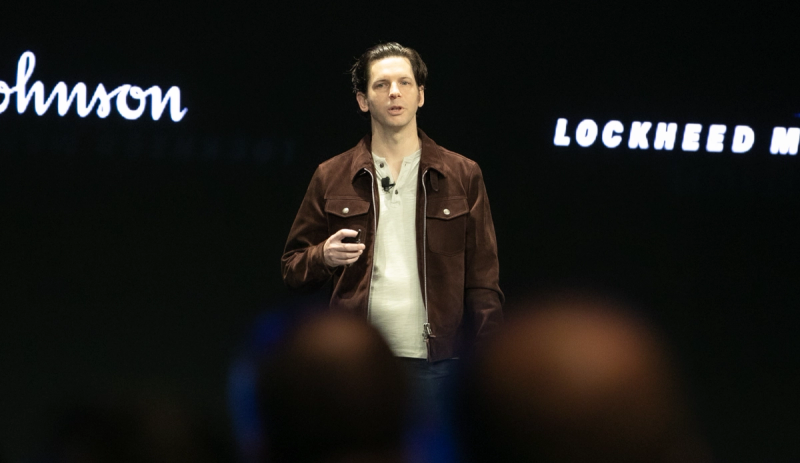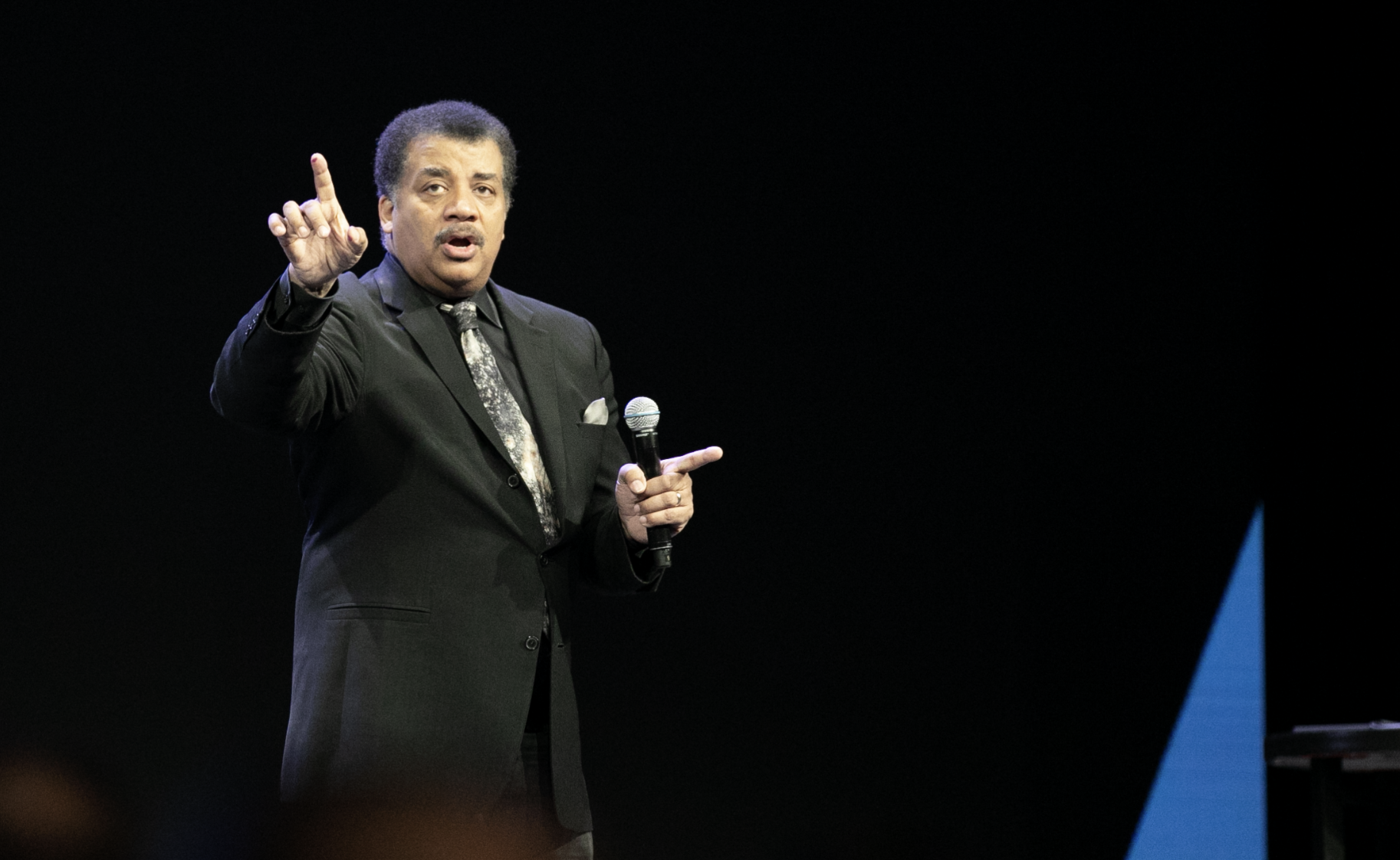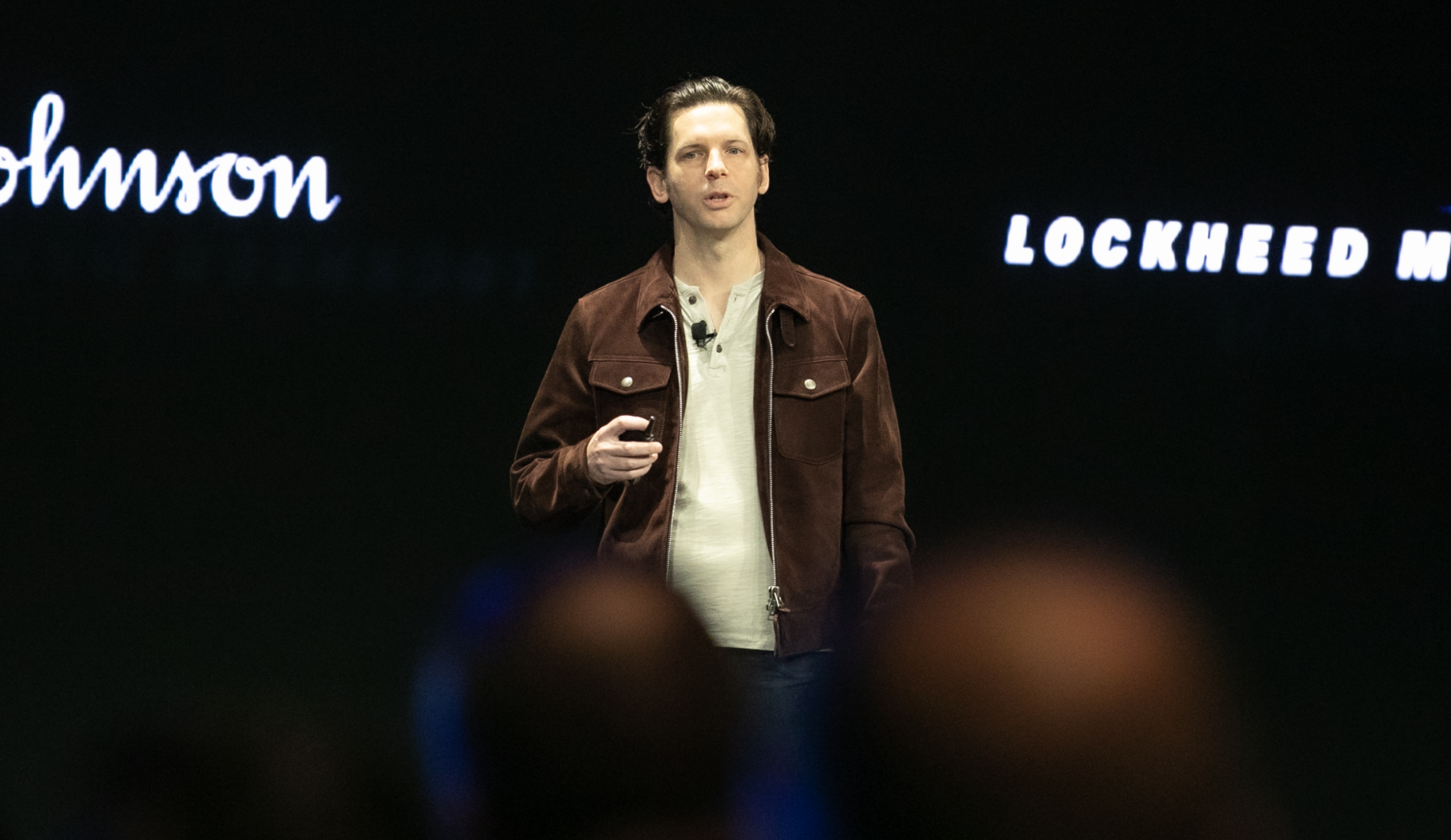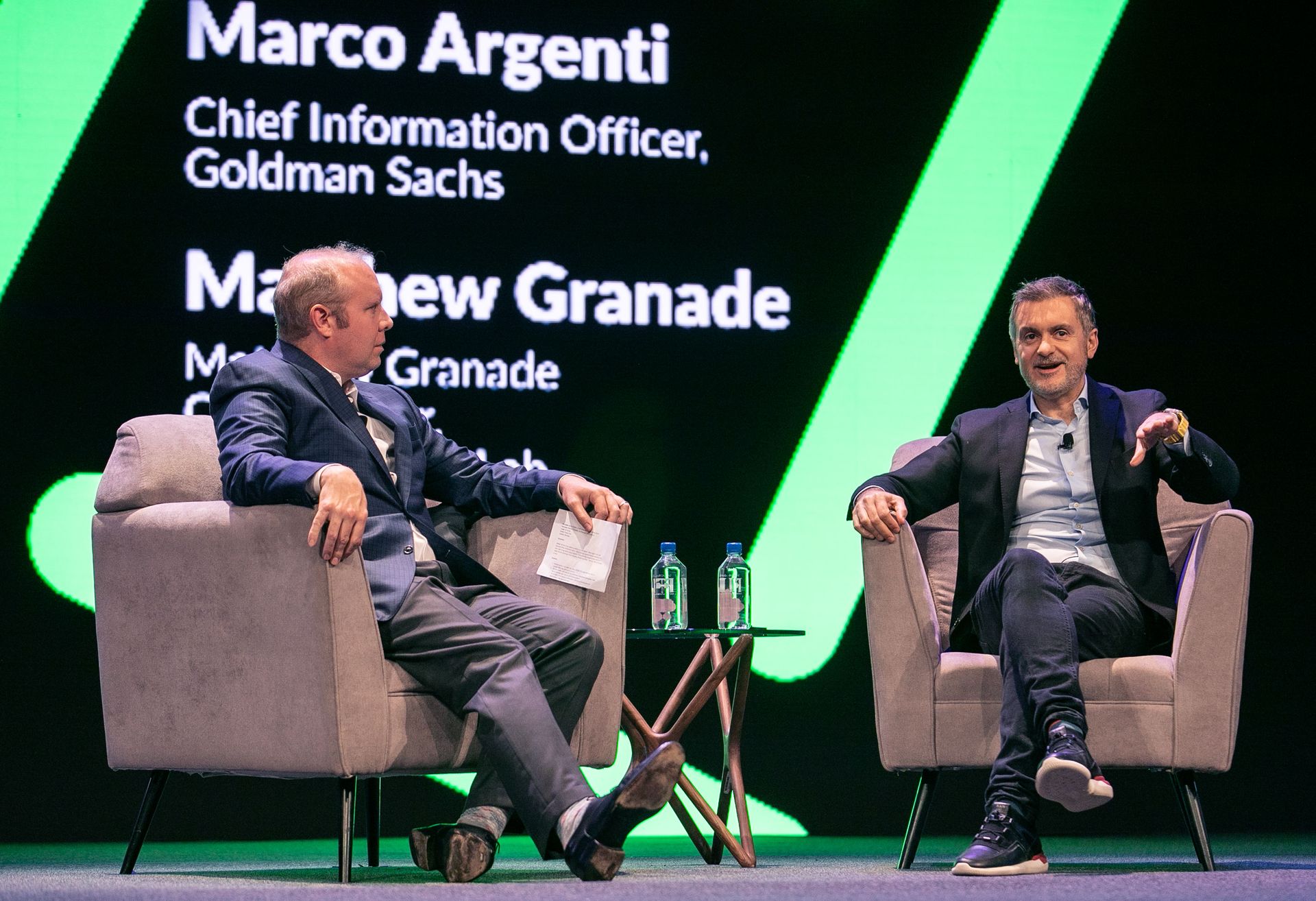Rev 4 Goes ALL IN as Generative AI Begins Its Meteoric Rise
Domino Data Lab2023-06-02 | 8 min read

Hundreds of data science leaders, practitioners, and the IT counterparts teaming with them, gathered together in New York City—in this iconic moment for artificial intelligence—at the fourth Rev conference. The event, billed as the most important conference on fast, responsible, economical AI innovation, is dedicated to helping the world’s most sophisticated companies go “all in” with AI, and teaching them how to get there quickly and safely using proven methods from industries across business and science.
The Power of AI Innovation: Key Insights from Rev 4
Neil deGrasse Tyson, the renowned physicist and science commentator, kicked off the show with a keynote addressing the perils of defining our galaxy, a context as wide as the opportunity AI presented its attendees. Noting that astronomy is a practice which has practically revolved around AI for decades, he traced the impact of what he called suspect data, the death of Pluto (as a planet) as a result, and reasonable concerns about AI today and tomorrow..

This was just the tip of the fervor around the theme, "ALL IN," as mounting excitement was palpable, and it’s clear that a collective commitment to AI and data science is stronger than ever. Let's take a moment to look back at the key themes covered in the keynotes by industry stalwarts, Nick Elprin, Karim R. Lakhani, and Marco Argenti.
"ALL IN" for AI Innovation
Nick Elprin, Domino's CEO and co-founder, set the tone by expounding on Domino’s "ALL IN" spirit. He highlighted the crucial role of data science in AI value and driving company revenues. According to Nick, investing in enterprise AI is no longer a choice—it’s a necessity for companies that aim to lead their industries. The need to shift from traditional, rigid IT infrastructures to agile, data science-based platforms was a prominent point in his discussion. Ultimately, he underscored the importance of establishing a strong data culture within organizations, putting forth Domino's Data Science Maturity Framework as a valuable guide to drive this transformation.

“No industry will be spared from heightened competition," he said. “If you aren’t “all in” on AI right now, you might as well fold.”
Elprin left the audience with three thematic key takeaways:
1️⃣ Prioritization, People, and Platforms: AI should start from strategic objectives and goals, not just the availability of data or algorithms. It's also critical to have the right people (professional data scientists) and the right technology to empower them.
2️⃣ The Uniqueness of AI Models: Traditional software is programmed to perform a task, but AI builds instructions by analyzing a myriad of examples. This fundamental difference makes AI models a unique digital life.
3️⃣ AI Platforms: Modern AI requires unique toolboxes, workbenches, and factories for data scientists to work effectively. AI leadership can be propelled by well-designed, purpose-built platforms.
In conclusion, Elprin left the audience with three exciting announcements to help drive faster, economical and responsible AI access industries:
1️⃣ Domino's Summer 2023 Release: The newly announced Summer Release of Domino focuses on the unique needs of data science organizations, providing flexibility, a cohesive experience across the model lifecycle, and a safe factory for AI core business.
2️⃣ Domino Cloud with Nexus: To meet the increasing complexity of AI infrastructure, Domino is now offered as a SaaS solution that allows running workloads in private clusters. This provides the convenience of SaaS with the data security of private clouds.
3️⃣ Domino Cloud for Life Sciences: A special version of Domino Cloud designed to meet the regulatory requirements in the medical and healthcare sector.
Before handing the Rev torch to a stellar lineup of experts from industry and academia ready to educate attendees for the next two days, Elprin reiterated his devotion to helping Domino’s customers unleash AI.
“We can’t wait to see what our customers will build with these new capabilities, he said.”
Redefining Strategy and Capabilities in the AI Era
In the afternoon, Karim R. Lakhani, from the Harvard Business School, deep-dived into the effects of AI on business strategy. In a world increasingly governed by digital networks, companies need to redefine their competitive advantages. AI-driven learning curves and traditional network effects are now reinforcing each other, pushing companies to rethink their business models and strategies.
Karim emphasized that mastering data sourcing, processing, analytics, and algorithm development will be the key to staying competitive. However, he warned of the risks AI poses, like job dislocation and the erosion of traditional capabilities, urging leadership to address these issues conscientiously.
Technological Disruption and Prioritization at Goldman Sachs
Rounding off the day, Marco Argento, CIO at Goldman Sachs, took us through the financial giant's journey to becoming a tech-driven company. He spoke candidly about the disruption of traditional IT roles and the need for an external perspective to spark innovation. Prioritization emerged as a central theme in Marco's speech—he emphasized that knowing how to prioritize is more important than the actual priorities. Goldman Sachs is also focusing on equipping its staff with the necessary skills to navigate the disruption in AI. Moreover, he spoke about the promise of generative AI and the importance of adopting a customer-centric approach in technology development.

“At the end of the day we’re all becoming prompt engineers,” said Argenti. “An engineer’s job is going to be less and less about writing code and more and more about writing outcomes and instructions to get a computer to do what we want them to do and what we want them to be.”
Navigating the Future
Each keynote speaker echoed the same sentiment: AI and data science are not just trends—they are revolutionary forces reshaping industries across the globe. Companies must take the leap and go "ALL IN" to unlock the transformative potential of these technologies.
However, it's not just about diving headfirst into AI. As our speakers highlighted, companies need to navigate this space responsibly. Addressing challenges like privacy, cybersecurity, and job displacement is just as important as leveraging the benefits of AI.
As we move forward from Rev 4, it's clear that the journey of integrating AI into our businesses is filled with both opportunities and challenges. But, if there's one thing we've learned, it's that embracing change and facing these challenges head-on is the first step towards building a successful AI-driven future.
Stay tuned for more insights from the Rev 4 conference! Let's continue to go ALL IN on data science and shape the future of AI together.
Domino powers model-driven businesses with its leading Enterprise MLOps platform that accelerates the development and deployment of data science work while increasing collaboration and governance. More than 20 percent of the Fortune 100 count on Domino to help scale data science, turning it into a competitive advantage. Founded in 2013, Domino is backed by Sequoia Capital and other leading investors.



